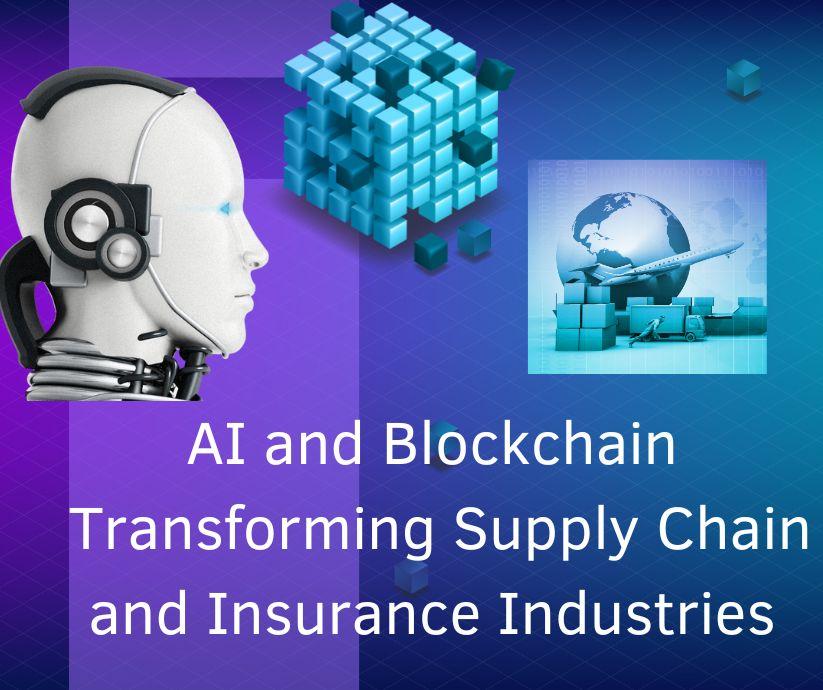In today’s digital transformation era, organizations leverage cutting-edge technologies to enhance efficiency, transparency, and risk management. Artificial intelligence (AI) and blockchain have emerged as powerful tools driving innovation in supply chain management and the insurance sector. Karthik Muccha explores the potential of these technologies in revolutionizing business operations, focusing on AI-driven predictive supply chains, blockchain-enabled transparency, and AI-powered risk assessment. His insights deeply dive into how these advancements shape modern enterprises.
AI-Powered Predictive Supply Chain Management
Supply chain disruptions can lead to severe financial and operational consequences, making business efficiency and resilience critical. AI-driven predictive analytics empower companies to shift from reactive problem-solving to proactive decision-making by leveraging real-time data from IoT devices, ERP systems, and external sources.
Machine learning algorithms can accurately predict shipment delays, assess supplier reliability, and forecast demand fluctuations by analyzing historical patterns. This enables businesses to optimize logistics, anticipate risks, and implement data-driven strategies. Dynamic optimization through AI simulations allows organizations to test various scenarios and develop contingency plans, minimizing downtime. Companies adopting AI in supply chain management experience enhanced agility, improved resource utilization, and stronger resilience against disruptions.
Blockchain for Supply Chain Transparency
Blockchain technology plays a crucial role in enhancing transparency and trust in supply chains by eliminating data silos and ensuring seamless collaboration across multiple stakeholders. Traditional supply chains often suffer from fragmented data, leading to inefficiencies and limited traceability. Blockchain-as-a-Service (BaaS) offers a decentralized, immutable ledger that records every transaction, providing end-to-end visibility from production to delivery.
A permissioned blockchain network allows only verified participants to authenticate and validate transactions, ensuring data integrity and security. Smart contracts further automate key processes such as regulatory compliance, contract enforcement, and payment execution, minimizing manual intervention, errors, and fraud risks.
Industries like pharmaceuticals, food safety, and luxury goods particularly benefit from blockchain’s ability to verify product authenticity and traceability. By ensuring that every product meets strict regulatory requirements, blockchain significantly reduces counterfeit risks and enhances consumer trust in global supply chains.
AI-Driven Risk Assessment in Insurance
The insurance industry is undergoing a transformation through AI-driven risk assessment models. Traditional actuarial methods rely on static data and manual underwriting processes. AI enhances risk profiling by integrating structured and unstructured data from various sources, including social media, IoT devices, and medical records.
Machine learning algorithms assess vast datasets to identify risk patterns and anomalies, enabling insurers to offer more personalized and dynamic coverage plans. Natural language processing (NLP) extracts valuable insights from claim descriptions, while computer vision aids in automated damage assessment for property and casualty insurance. This shift towards real-time risk monitoring helps insurers detect fraud and optimize pricing models based on individual behavior and environmental factors.
Challenges and Implementation Considerations
Despite the immense potential of AI and blockchain, successful implementation requires addressing several key challenges. Organizations must develop robust technical infrastructures capable of handling real-time data processing and blockchain transactions. Cloud-based architectures play a crucial role in ensuring scalability and computational efficiency.
Data governance is another critical factor, as AI models heavily depend on high-quality, well-structured data. Organizations must establish governance frameworks to manage data privacy, integrity, and compliance effectively. Additionally, a well-planned change management strategy is essential for seamless adoption. Workforce training, digital literacy programs, and stakeholder alignment are necessary to integrate AI and blockchain solutions successfully.
The Future of AI and Blockchain in Business
As AI and blockchain continue to evolve, their convergence is expected to drive even more innovative applications. From predictive logistics to decentralized financial services, these technologies are reshaping industries by offering scalable, secure, and efficient solutions. The integration of AI’s analytical capabilities with blockchain’s immutable architecture is creating new business models that prioritize data-driven decision-making and trustless transactions.
In conclusion, Karthik Muccha highlights that AI and blockchain are transforming the supply chain and insurance industries by enhancing efficiency, security, and risk assessment. Businesses that strategically implement these technologies stand to gain a competitive advantage in an increasingly digital landscape. As organizations navigate the complexities of digital transformation, investing in AI and blockchain solutions will be crucial in shaping the future of enterprise operations.



































